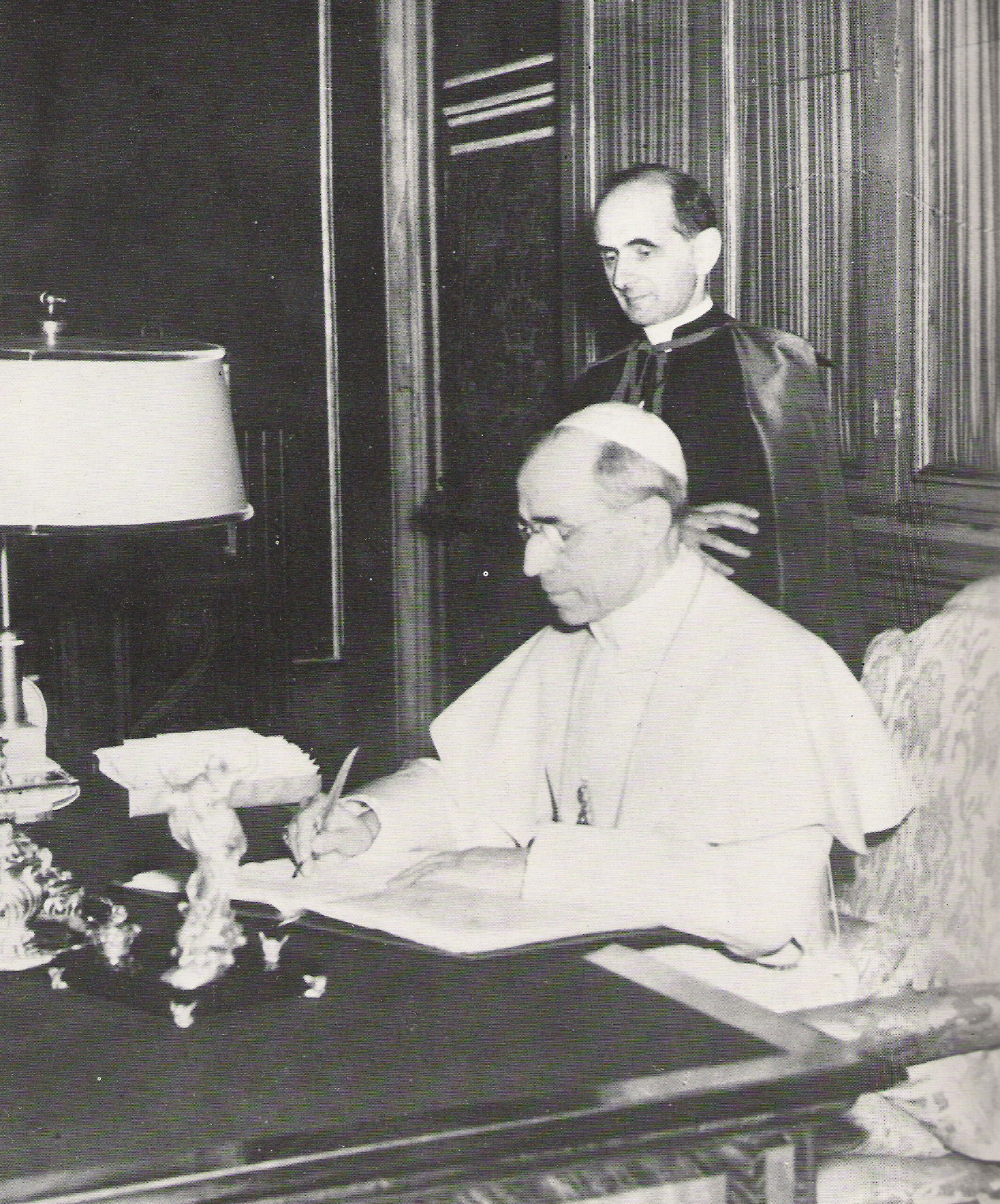|
Mirabile Illud
''Mirabile illud'' is an encyclical of Pope Pius XII on the crusade of prayer for peace, given at Rome from St. Peter's on the 6 December 1950, the twelfth year of his Pontificate. The Pope is concerned about imminent war spreading from the Korea to the world. Bloody conflicts bring in their wake untold ruins, slaughter and misery of every kind. He exhorts all to put aside animosities and differences and introduce that true peace. But, because human efforts are incapable of achieving such results, he institutes a prayer crusade for the whole Church. The faithful should unite with the Pope via radio at midnight of the feast of the Immaculate Conception of the Blessed Virgin Mary. During the Novena for Christmas and on Christmas night, all the faithful should be united with the Vicar of Jesus Christ, praying for should real and genuine peace to all nations and peoples. Earnest prayers to the newborn Christ through His Blessed Mother should be made, so that the Catholic re ... [...More Info...] [...Related Items...] OR: [Wikipedia] [Google] [Baidu] |
Encyclical
An encyclical was originally a circular letter sent to all the churches of a particular area in the ancient Roman Church. At that time, the word could be used for a letter sent out by any bishop. The word comes from the Late Latin (originally from the Latin , a Latinization of Greek (), meaning "circular", "in a circle", or "all-round", also part of the origin of the word encyclopedia). The term has been used by Catholics, Anglicans and the Eastern Orthodox Church. Catholic usage Although the term "encyclical" originally simply meant a circulating letter, it acquired a more specific meaning within the context of the Catholic Church. In 1740, Pope Benedict XIV wrote a letter titled ''Ubi primum'', which is generally regarded as the first encyclical. The term is now used almost exclusively for a kind of letter sent out by the pope. For the modern Roman Catholic Church, a papal encyclical is a specific category of papal document, a kind of pastoral letter concerning Catholic ... [...More Info...] [...Related Items...] OR: [Wikipedia] [Google] [Baidu] |
Pope Pius XII
Pope Pius XII ( it, Pio XII), born Eugenio Maria Giuseppe Giovanni Pacelli (; 2 March 18769 October 1958), was head of the Catholic Church and sovereign of the Vatican City, Vatican City State from 2 March 1939 until his death in October 1958. Before 1939 papal conclave, his election to the papacy, he served as secretary of the Section for Relations with States (Roman Curia), Department of Extraordinary Ecclesiastical Affairs, Apostolic Nuncio to Germany, papal nuncio to Germany, and Cardinal Secretary of State, in which capacity he worked to conclude treaties with European and Latin American nations, such as the ''Reichskonkordat'' with the German Reich. While the Vatican was officially neutral during World War II, the ''Reichskonkordat'' and his leadership of the Catholic Church during the war remain the subject of controversy—including allegations of public silence and inaction about the fate of the Jews. Pius employed diplomacy to aid the victims of the Nazis during the w ... [...More Info...] [...Related Items...] OR: [Wikipedia] [Google] [Baidu] |
Encyclicals Of Pope Pius XII
This is a list of encyclicals of Pope Pius XII. Pius XII promulgated 41 papal encyclicals, during his reign as pope for over 19 years, from his election of March 2, 1939, until his death on October 9, 1958. The 41 encyclicals of Pius XII exceed the 32 encyclicals written by all his successors (John XXIII, Paul VI, John Paul I, John Paul II, and Benedict XVI) during the fifty years that followed (1958–2008). The encyclicals of Pius XII , - , 6. , , '' Orientalis Ecclesiae'' , , "Of the Eastern Church" , , On St. Cyril, Patriarch of Alexandria , , April 9, 1944 , (English), - , 7. , , ''Communium interpretes dolorum'' , , "Interpreter of the universal anguish" , , On Ending the Second World War , , April 15, 1945 , (English), - , 8. , , ''Orientales omnes Ecclesias'' , , "All the Eastern Churches" , , On the 350th Anniversary of Reunion of the Ruthenian Church with Rome , , December 23, 1945 , (English), - , 9. , , ''Quemadmodum'' , , , , On Pleading for Ca ... [...More Info...] [...Related Items...] OR: [Wikipedia] [Google] [Baidu] |
December 1950 Events
December is the twelfth and final month of the year in the Julian and Gregorian calendars and is also the last of seven months to have a length of 31 days. December got its name from the Latin word ''decem'' (meaning ten) because it was originally the tenth month of the year in the calendar of Romulus which began in March. The winter days following December were not included as part of any month. Later, the months of January and February were created out of the monthless period and added to the beginning of the calendar, but December retained its name.Macrobius, ''Saturnalia'', tr. Percival Vaughan Davies (New York: Columbia University Press, 1969), book I, chapters 12–13, pp. 89–95. In Ancient Rome, as one of the four Agonalia, this day in honour of Sol Indiges was held on December 11, as was Septimontium. Dies natalis (birthday) was held at the temple of Tellus on December 13, Consualia was held on December 15, Saturnalia was held December 17–23, Opiconsivia was he ... [...More Info...] [...Related Items...] OR: [Wikipedia] [Google] [Baidu] |


